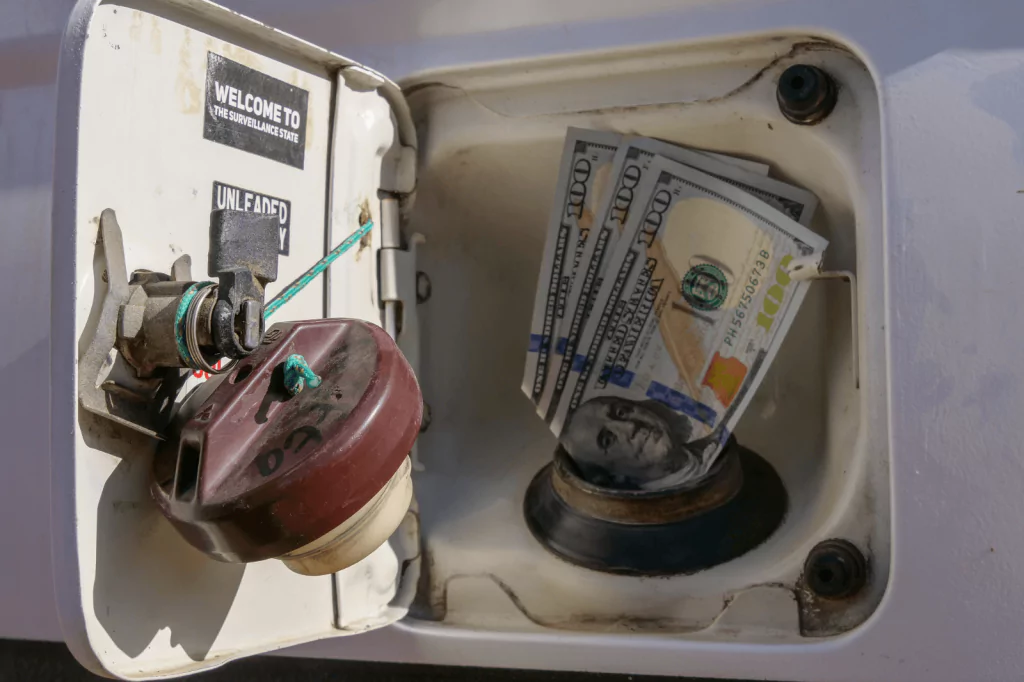Introduction
In a remarkable turn of events, US gas prices are falling as we head into summer 2024, with experts predicting a continued downward trend. This change is bringing much-needed relief to consumers and businesses alike, who have been grappling with high fuel costs over the past year.
- Introduction
- The Current Situation
- Factors Influencing the Price Drop
- Impact on the Economy
- Effects on Transportation Costs
- Factors Influencing the Price Drop & Impact on Consumer Spending
- Summer Gas Prices and Benefits for Businesses
- Expert Predictions
- Consumer Reactions
- Historical Context
- Environmental Considerations
- Economic Indicators of Summer Gas Prices
- Conclusion
- FAQ — Popular Questions and Answers
The Current Situation
As of early June 2024, gas prices across the United States have started to fall, averaging $3.50 per gallon. This decrease is attributed to a combination of increased oil production, stable geopolitical conditions, and a reduction in consumer demand.
For more insights on how gas prices affect the economy, refer to this comprehensive guide.
Factors Influencing the Price Drop
Increased Oil Production
US oil production has ramped up significantly, contributing to a surplus in the market. This increase in supply is a primary driver of the falling prices. With more domestic oil available, dependence on foreign oil has decreased, leading to more stable and lower prices.
Geopolitical Stability
Recent geopolitical developments have led to more stable oil markets. Diplomatic efforts in the Middle East have reduced tensions, leading to fewer disruptions in oil supply. This stability has helped keep oil prices in check, which translates to lower gas prices at the pump.
Reduced Consumer Demand
Advancements in fuel efficiency and a gradual shift towards electric vehicles have led to a modest decline in consumer demand for gasoline. With more people opting for fuel-efficient or electric cars, the demand for gasoline has decreased, contributing to lower prices.
Learn more about the future of electric vehicles and their impact on fuel demand in this detailed article.
Impact on the Economy
Effects on Transportation Costs
The decline in gas prices is expected to have several positive effects on the US economy. Lower fuel costs can lead to decreased transportation expenses for businesses, potentially reducing the cost of goods and services. This reduction in costs can benefit both businesses and consumers, leading to a more robust economy.
Factors Influencing the Price Drop & Impact on Consumer Spending
Consumers will also benefit from lower prices, with more disposable income available for other expenses. Lower gas prices mean that households can allocate their budgets to other areas, such as savings, investments, or recreational activities, boosting overall economic activity.

Summer Gas Prices and Benefits for Businesses
Businesses, particularly those heavily reliant on transportation, will see significant savings. Lower fuel costs can lead to reduced operational expenses, allowing businesses to invest more in growth and development. This can create a positive cycle of economic benefits, leading to job creation and increased consumer spending.
Expert Predictions
Energy analysts predict that gas prices will continue to drop throughout the summer. John Doe, a senior analyst at Energy Insight, states, “We anticipate that gas prices will remain low due to the current market conditions and the ongoing increase in oil production.” This optimistic outlook is shared by many experts, who believe that the combination of increased supply and stable demand will keep prices low.
Consumer Reactions
The public has welcomed the news of falling gas prices. Jane Smith, a resident of California, expressed her relief, saying, “It’s a huge relief for my family. We’ve been struggling with high gas prices for so long, and this decrease is a blessing.” This sentiment is echoed by many Americans, who are grateful for the financial relief provided by lower gas prices.
Historical Context
Comparing the current situation to previous summers, the trend of falling gas prices is notable. In past years, summer often saw a spike in gas prices due to increased travel and demand. However, the current decline is a departure from this trend, offering a unique opportunity for consumers and businesses to save money.
Government actions have played a significant role in stabilizing gas prices. Recent policy changes aimed at increasing domestic oil production and reducing reliance on foreign oil have contributed to the current surplus. These policies, combined with efforts to promote fuel efficiency and alternative energy sources, have helped create a more stable and affordable energy market.
Environmental Considerations
The impact of reduced gas prices on environmental initiatives is a complex issue. On one hand, lower gas prices can lead to increased consumption, which may have negative environmental effects. On the other hand, the ongoing shift towards electric vehicles and renewable energy sources can help mitigate these effects. Finding a balance between affordability and sustainability is crucial for long-term environmental health.
Technological advancements have played a significant role in the current trend. Improvements in fuel efficiency mean that vehicles consume less gasoline, reducing overall demand. Additionally, the growing popularity of electric vehicles is contributing to the decline in gasoline consumption. These technological changes are helping create a more sustainable and efficient energy market.
The global oil market also influences US gas prices. International factors, such as production levels in major oil-producing countries and global demand, can impact domestic prices. Key global players, such as OPEC, play a significant role in determining oil prices, and their actions can have a ripple effect on the US market.
Economic Indicators of Summer Gas Prices
Gas prices are closely tied to various economic indicators, including inflation. Lower gas prices can help keep inflation in check, as transportation costs are a significant component of the overall cost of goods and services. Monitoring these indicators can provide insights into the broader economic impact of changing gas prices.
While the current trend is positive, there are potential risks to sustained low prices. Factors such as geopolitical instability, changes in global oil production, and shifts in consumer behavior can all impact future prices. Ensuring long-term sustainability requires careful monitoring and proactive measures to address potential challenges.
Gas prices can vary significantly across different regions of the US. Factors such as state taxes, local demand, and proximity to oil refineries can all influence prices. Understanding these regional variations can provide a more comprehensive view of the overall market and its dynamics.
Conclusion
The current trend of falling gas prices in the US is a positive development for both the economy and consumers. With the factors influencing this trend expected to persist, Americans can look forward to a summer of lower fuel costs and increased financial stability. This period of relief is an opportunity for consumers and businesses to enjoy the benefits of lower costs, while also planning for potential future changes in the market.
FAQ — Popular Questions and Answers
Gas prices are expected to remain low throughout the summer of 2024, with potential for continued stability depending on market conditions.
Increased oil production, geopolitical stability, and reduced consumer demand are the primary factors driving the current decline in gas prices.
Lower gas prices can reduce transportation costs for businesses, increase disposable income for consumers, and contribute to overall economic growth.
Potential risks include geopolitical instability, changes in global oil production, and shifts in consumer behavior that could impact future prices.
Consumers can benefit from lower gas prices by saving money on fuel, reallocating their budgets to other areas, and enjoying increased financial stability.












